- About Ramapo
- Academics
- Admissions & Aid
- Student Life
- Athletics
- Alumni
- Arts & Community
- Quick Links
- Apply
- Visit
- Give
Ramapo International
Hear perspectives and engage with climate change scholar-practitioner from India. Discuss the current issues and how they are addressing this in all scales from local community to international policy.
WebEx Link: https://ramapo.webex.com/ramapo/j.php?MTID=mbb8a54562cac92f445cfa744dd848904 (Pre-registration required)
Speaker Bio:
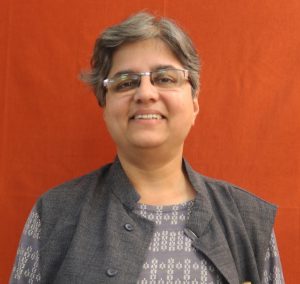 Dr. Priyadarshini Karve completed Ph.D. in Physics from University of Pune, in 1998. Her first research project resulted in the development of a process for converting agricultural waste into charcoal. The technology won the Ashden Award for Renewable Energy in 2002.
Dr. Priyadarshini Karve completed Ph.D. in Physics from University of Pune, in 1998. Her first research project resulted in the development of a process for converting agricultural waste into charcoal. The technology won the Ashden Award for Renewable Energy in 2002.
In a career spanning more than 20 years, Dr. Karve invented a number of improved biomass burning cooking devices, to reduce smoke in the kitchen and dependence on firewood for domestic cooking in rural areas. She has also worked on “decentralised organic waste to fuel” technologies. She developed a methodology for technology selection and promotion to improve adoption of clean cooking energy devices by end users. In the past 5 years or so, her work has also focused on devising and promoting strategies for low carbon, sustainable urbanisation.
She has published more than 30 research papers in peer reviewed journals, and has contributed to technical books. In 2005, she started Samuchit Enviro Tech, a social enterprise that promotes environmentally sustainable energy and lifestyle products. Dr. Karve, who is the Managing Director of Samuchit, has also invented an easy-to-use Samuchit Carbon Footprint Calculator for Urban Indians, and conducts workshops on climate friendly lifestyle, sustainable urbanisation, etc. She is also a Founder Director of OrjaBox LLP, a green start-up, from 2021.
Dr. Karve is actively involved in national and international organisations working in the field of renewable energy, equitable sustainable development, climate resilience, etc. Over the years she has successfully led numerous short term funded projects based on scientific and technological research, technology dissemination and commercialisation, third party assessments, and policy advocacy. She is a Founder Member and a Member of the Board of Directors of Clean Energy Access Network (CLEAN), a registered society in India, and serves on the Governing and Advisory Bodies of a number of other national and international organisations. She is also the National Convener of Indian Network on Ethics and Climate Change (INECC). She teaches courses on Sustainability, Physics, and Big History (History of the Universe) at Symbiosis International University. In addition, she is co-editor of ‘Shaikshanik Sandarbh’ a Marathi language bi-monthly on Science and Education, and a member of the Board of Editors for ‘Confluence: Journal of Interdisciplinary Studies’.
Her work has been honoured by several national and international awards, including World Technology Award in Environment Category 2005 (by World Technology Network, New York), Sahyadri Hirakani Award 2011 (by Mumbai Doordarshan Television Channel, India), Vasundhara Award 2014 (by Kirloskar Vasundhara International Environmental Film Festival), “Unch Maza Zoka” Award 2015 in Environment Category (by Zee TV Marathi Television Channel, India), etc. She is a TEDx speaker and has also been featured in a number of national and international periodicals, publications, radio and television programmes, and podcasts.
“India Today” will be an introductory talk on contemporary Indian society, politics, the work of NGOs (non-governmental organizations), and the various themes of gender, climate/environment, religion, media, and education. Hear from a renowned expert in India for this virtual and in-person event.
Presenters:
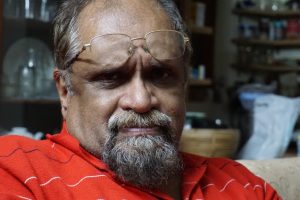 Siddhartha is the founder of Pipal Tree, an organisation concerned with media, inter-culturality, and environment issues, and Fireflies Intercultural Centre, an international eco-spiritual centre in Bangalore. He coordinates Meeting Rivers, an e-bulletin which engages religion and spirituality from a social and ecological perspective. He has lectured widely in Dublin, University of Massachusetts, Ramapo College (New Jersey), the United Nations University in Tokyo and organized international conferences and workshops in Manila, Bangkok, Seoul, Paris, Melbourne, Kathmandu and Bangalore on issues related to culture, ecology and sustainable development.
Siddhartha is the founder of Pipal Tree, an organisation concerned with media, inter-culturality, and environment issues, and Fireflies Intercultural Centre, an international eco-spiritual centre in Bangalore. He coordinates Meeting Rivers, an e-bulletin which engages religion and spirituality from a social and ecological perspective. He has lectured widely in Dublin, University of Massachusetts, Ramapo College (New Jersey), the United Nations University in Tokyo and organized international conferences and workshops in Manila, Bangkok, Seoul, Paris, Melbourne, Kathmandu and Bangalore on issues related to culture, ecology and sustainable development.
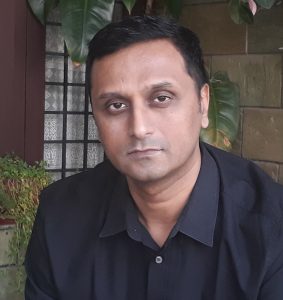 Chandan Gowda is Ramakrishna Hegde Chair Professor of Decentralization and Development at the Institute for Social and Economic Change, Bengaluru. His areas of research include Indian political thought and modern Kannada literature and cinema. Besides academic publications, he has translated Kannada fiction and non-fiction into English. He has compiled and edited The Way I See It: A Gauri Lankesh Reader and A Life in the World, a book of autobiographical interviews he did with UR Ananthamurthy. At present, he is completing a book on the cultural politics of development in the old Mysore and co-translating and editing Daredevil Mustafa, a book of short stories by the Kannada writer, Purnachandra Tejasvi. He is also a columnist with Deccan Herald.
Chandan Gowda is Ramakrishna Hegde Chair Professor of Decentralization and Development at the Institute for Social and Economic Change, Bengaluru. His areas of research include Indian political thought and modern Kannada literature and cinema. Besides academic publications, he has translated Kannada fiction and non-fiction into English. He has compiled and edited The Way I See It: A Gauri Lankesh Reader and A Life in the World, a book of autobiographical interviews he did with UR Ananthamurthy. At present, he is completing a book on the cultural politics of development in the old Mysore and co-translating and editing Daredevil Mustafa, a book of short stories by the Kannada writer, Purnachandra Tejasvi. He is also a columnist with Deccan Herald.
Moderator:
Sanghamitra Padhy, Associate Professor of Law & Society, Ramapo College of New Jersey (Profile)
WebEx: https://ramapo.webex.com/ramapo/j.php?MTID=mca13973af95e11d3e27d034360d3c945 (Pre-registration required)
Program Description: African universities are currently grappling with finding transformative pathways that make them relevant, useful and productive. In this effort, incorporating and integrating indigenous knowledge systems has not been sufficiently explored. African knowledge systems have not been systematically studied. Neither is their value and relevance to current African society examined. This talk presents the nature and problems associated with studying African knowledge systems. In particular, it tackles the broader Africana issue by way of examining the case of the merits, features and stages of the Ethiopian traditional education system. The benefits lost when modern, i.e., Western style education was solely adopted in Ethiopia, disregarding the traditional education system, is discussed. This brief talk recommends that systematically studying African knowledge systems is important for African universities to forge their identity, and to appreciate the continent’s needs and the direction of its social, economic, political, and personal development.
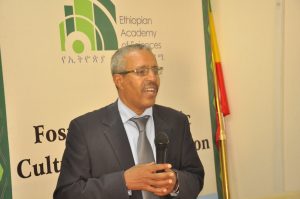
Masresha Fetene is an Emeritus Professor of Plant Ecophysiology, at Addis Ababa University. Heis currently a Fulbright Visiting Scholar at Boston University, African Studies Center.
Co-Sponsored by: the Fulbright Outreach Lecturing Fund, Ramapo International, Ramapo’s School of Social Sciences & Human Services, Ramapo’s Multicultural Center and Boston University.
More details: https://www.ramapo.edu/international/fulbright/olf/
Copyright ©2025 Ramapo College Of New Jersey. Statements And Policies. Contact Webmaster.
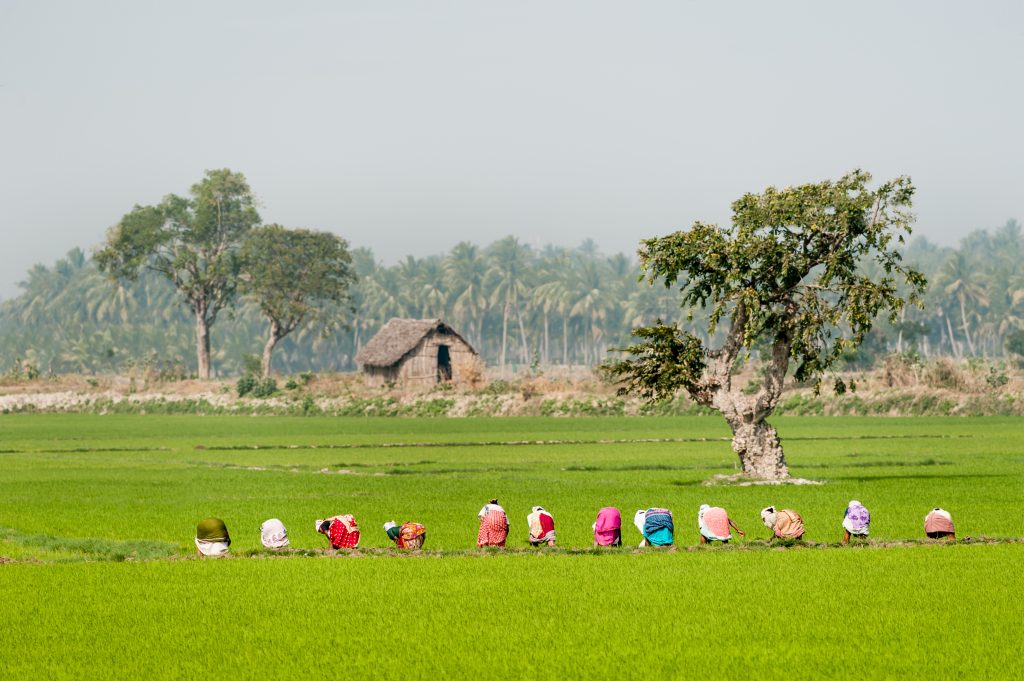




Follow Ramapo